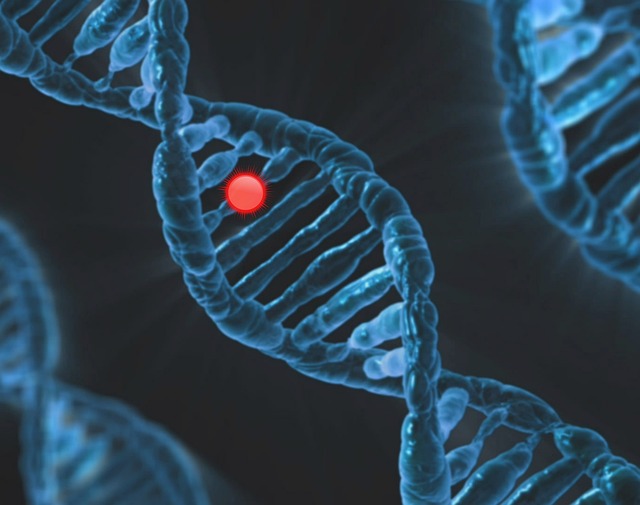למידע מורחב בנושא של therapeutic company עליך לגשת לאתר truemedtx.com
In this blog post, we delve into the intricate world of rare diseases, exploring what they mean for the patients who live with them and for the medical community that seeks to understand and treat them. We examine the uniqueness of each rare disease, the challenges they present, and the importance of research and advocacy.
Understanding the Uncommon: What is a Rare Disease?
A rare disease, also known as an orphan disease, refers to a medical condition that affects a small portion of the population. While there is no universally accepted definition for a rare disease, it is commonly defined as a condition that affects fewer than 200,000 individuals in the United States. These diseases are often complex, with symptoms that vary widely from person to person. They can be genetic or acquired, and they may be present from birth or develop later in life.
Rare diseases present unique challenges in the medical field. Due to their low prevalence, they are often overlooked or misdiagnosed, leading to delays in treatment and management. Diagnosis can be particularly difficult, as many healthcare professionals may have limited knowledge or experience with these conditions. Additionally, the lack of available treatment options for rare diseases further compounds the difficulties faced by patients and their families.
Living with a rare disease can be an isolating experience. The rarity of the condition means that patients often have limited access to support groups or communities of individuals facing similar challenges. This can lead to feelings of loneliness and frustration, as well as difficulties in finding resources and information. The impact of rare diseases extends beyond the physical symptoms, affecting the emotional and social well-being of patients and their loved ones.
The Challenges of Living with a Rare Disease: Is it a Lonely Journey?
- Limited Support Networks:
Living with a rare disease can often feel like a lonely journey. One of the main challenges faced by individuals with rare diseases is the lack of support networks. Unlike more common conditions, rare diseases do not usually have dedicated support groups or communities readily available. This can leave patients and their families feeling isolated and without a sense of belonging. Without a support system, it becomes difficult to find others who can truly understand the unique challenges and experiences associated with their condition. - 2. Lack of Awareness and Understanding:
Another challenge faced by those living with rare diseases is the general lack of awareness and understanding among the general public and even healthcare professionals. Many people have never heard of these conditions, and as a result, individuals with rare diseases often face judgment, skepticism, or misunderstanding. This can lead to feelings of frustration, isolation, and even discrimination. It becomes essential for individuals with rare diseases to constantly educate others about their condition, which can be exhausting and emotionally draining. - 3. Limited Treatment Options:
Rare diseases often lack effective treatment options due to their limited research and understanding. Pharmaceutical companies may be less inclined to invest in developing treatments for rare diseases due to the small patient population. This creates a significant challenge for individuals with rare diseases as they may face a lack of access to appropriate and effective treatments. It can be disheartening to constantly search for potential treatments or therapies, only to be met with limited options or experimental treatments that come with their own risks and uncertainties.
Unraveling the Mysteries: How Important is Research in Rare Diseases?
Research plays a vital role in understanding and addressing rare diseases. These conditions often present complex and unique challenges, and without dedicated research efforts, progress towards effective treatments and potential cures would be severely hindered. Research in rare diseases is crucial for several reasons.
Firstly, research helps to unravel the mysteries surrounding rare diseases. Many of these conditions have limited scientific knowledge, and their underlying causes and mechanisms are often poorly understood. By conducting research, scientists can delve into the intricacies of these diseases, uncovering genetic mutations, biomarkers, and disease pathways. This knowledge is critical for developing targeted interventions and personalized treatments.
Secondly, research in rare diseases can lead to improved diagnostics. Diagnostic delays are common in the rare disease community, as symptoms may be nonspecific or mistaken for more common ailments. Through research, new diagnostic tools and techniques can be developed, enabling earlier and more accurate diagnoses. This, in turn, allows for timely intervention, better disease management, and improved patient outcomes.
Furthermore, research in rare diseases can pave the way for the development of innovative therapies. As rare diseases often lack effective treatment options, research efforts aim to identify novel therapeutic approaches. This may involve repurposing existing drugs, exploring gene therapies, or investigating innovative treatment modalities. Without research, these potential breakthroughs would remain undiscovered, depriving individuals with rare diseases of much-needed treatment options.
"The Art of Medicine consists in amusing the patient while nature cures the disease." – Voltaire: How does this apply to rare diseases?
When it comes to rare diseases, the quote by Voltaire holds a significant meaning. Rare diseases often lack specific treatments or cures, leaving patients and their healthcare providers in a challenging situation. In such cases, the art of medicine lies in providing support, comfort, and care to patients while nature takes its course.
Rare diseases can be isolating and overwhelming for patients and their families. The lack of understanding and limited treatment options can lead to feelings of frustration and hopelessness. In this context, healthcare providers play a crucial role in providing emotional support and empathy, ensuring that patients feel heard, validated, and understood. By amusing the patient, healthcare professionals can help alleviate some of the emotional burden associated with living with a rare disease.
Moreover, the art of medicine in rare diseases involves managing symptoms and optimizing quality of life. While a cure may not be readily available, healthcare providers can focus on mitigating symptoms, improving functionality, and enhancing overall well-being. This may involve a multidisciplinary approach, including physical therapy, occupational therapy, pain management, and psychological support. By employing these strategies, healthcare professionals can help patients navigate the challenges of their condition and find moments of joy and relief amidst the difficulties.
Additionally, the quote highlights the importance of recognizing and respecting the power of nature in the healing process. Rare diseases are often complex and intertwined with intricate biological mechanisms. While medical interventions can provide support, it is nature's inherent ability to heal that ultimately plays a significant role. This understanding prompts healthcare providers to work in harmony with nature, providing the necessary care and support while allowing the body to take its natural course of healing.
Understanding what a rare disease means is not just about the medical definitions and statistics, but about the human stories behind them. It is a call to action for researchers, medical professionals, and policy makers to prioritize these diseases and not leave any patient behind. The world of rare diseases is a testament to the strength and resilience of patients and their families, and their stories are a compelling reminder of why research and advocacy matter.


